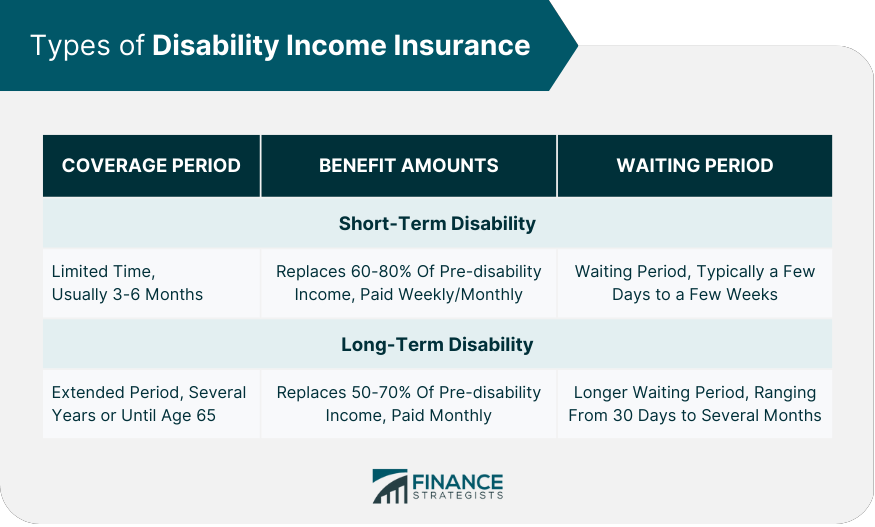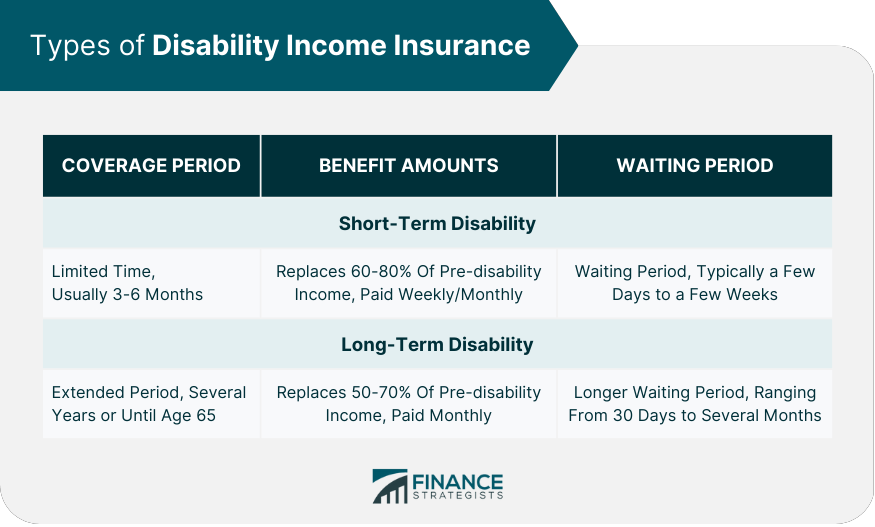Yes, short-term disability can be denied for mental health conditions. Insurance providers have the discretion to determine the legitimacy and severity of the mental health issue based on medical records, therapist’s conclusions, and adherence to treatment protocols. Denials may occur if the condition is seen as not sufficiently severe or if documentation is insufficient.
It may come as a surprise to many, but short-term disability claims can indeed be denied for mental health issues. The key lies in the thorough understanding of insurance policy terms and the way mental health conditions are perceived and defined under those terms. How we recognize and honor mental health diseases in disability policies plays a ground-breaking role in this puzzle.
Historically, mental health conditions were often overlooked or disregarded altogether, leading to denials of short-term disability claims. However, the changing landscape of healthcare and an increased understanding of mental health disorders have led to more favorable outcomes for many suffering from these conditions. Despite these advancements, about one-third of all short-term disability claim denials are still due to mental health issues, illuminating the need for continuous advocacy and reforms in this sector.

Can Short-Term Disability Coverage Include Anxiety and Depression?
Short-term disability, a type of insurance coverage, offers financial assistance to individuals who cannot work due to temporary disability. This insurance can cover a comprehensive range of health conditions, including mental health disorders like anxiety and depression. However, the exact coverage and qualifications may differ substantially among various insurers and plans.
While mental health is gaining more recognition in insurance policies, it is also true that there can be scenarios where short-term disability could be denied for mental health reasons. The denial is generally based on factors such as lack of adequate evidence, stipulations about pre-existing conditions, or discrepancies in the information provided. Thus, sufferers of anxiety and depression seeking short-term disability should ensure they have thorough medical documentation supporting their claim to avoid denial.
Key Factors That Could Result in Denial of Short-term Disability Benefits
In the realm of benefits and compensation, short-term disability insurance plays an essential role by providing employees with a portion of their regular income should they become temporarily unable to work due to a serious health condition or injury. However, it’s important to understand that there are certain circumstances under which this coverage may be denied.
Can Short-term Disability Be Denied for Mental Health Reasons?
When it comes to mental health conditions, such as depression, anxiety, or PTSD, these are often recognized as legitimate reasons for short-term disability claims. However, the approval of such claims typically requires substantial medical documentation and evidence. If the insurance company or your employer deems that the provided documentation is insufficient or fails to prove that you’re unable to perform work-related tasks due to your mental health condition, the claim may be denied.
Furthermore, certain policies might limit the length of coverage for mental health-related absences or may exclude mental health conditions entirely from being eligible for benefits. Therefore, it’s vital to read the terms of your specific short-term disability policy closely and consult a healthcare or legal professional if necessary, to ensure you understand your coverage and the potential conditions under which a claim might be denied.
Understanding the Reasons Behind the Rejection of Mental Health Disability Claims
When discussing the topic of short-term disability, it’s critical to understand what it involves before delving into its potential denial for mental health reasons. Short-term disability is a type of insurance benefit that provides partial pay for non-work-related injuries or illnesses that temporarily hinder an individual’s capacity to perform their usual job tasks. It’s generally designed to cover severe medical conditions or injuries that incapacitate a person for a short period, such as a few weeks to a few months.
Despite mental health conditions being a valid cause of disability, claims can sometimes be denied. This denial may arise due to a lack of substantial medical evidence supporting the impact of the mental health condition on the individual’s ability to work. It could also be that the claimant failed to properly follow the prescribed treatment. It is essential to note that to qualify for short-term disability benefits related to mental health, the condition must be diagnosed by a licensed medical or mental health professional and substantially limit one or more major life activities of the claimant.
Understanding the Complexities of Securing Disability Benefits for Depression
In the realm of disability benefits, mental health conditions often take center stage as delicate topics open to interpretation. There are several elements individuals must consider when inquiring, “Can short-term disability be denied for mental health?”
Firstly, mental health conditions, such as depression, can indeed qualify for short-term disability benefits. However, securing these benefits may not be straightforward due to the challenge of substantiating the severity and impact of the condition on the individual’s ability to perform work-related tasks.
Secondly, although mental health conditions can technically qualify for short-term disability, these claims can sometimes be denied. While unjust, it often relates back to the difficulty in validating the disabling effect of the mental health condition spiraling from the often subjective nature of mental health assessment.
What are the Steps to Secure Short-Term Disability Approval for Anxiety and Depression?
Mental health conditions, including anxiety and depression, are increasingly recognized for their impact on individuals’ ability to work and function in daily life. Short-term disability benefits can provide a lifeline for those struggling with such conditions, providing financial stability while they seek treatment and recovery. However, securing these benefits can often be a complex process, with various requirements and criteria to be met.
It’s vital to understand that short-term disability benefits aren’t always easily approved for mental health conditions. This is largely due to the subjective nature of these conditions, as well as the difficulty in proving their disabling effects. While physical disabilities often have clear, measurable symptoms, mental health conditions can be more elusive and variable. Therefore, while it’s possible to secure short-term disability for anxiety and depression, it often requires substantial documentation and evidence, including comprehensive medical records and statements from treating professionals.
How Can You Secure Short-Term Disability Approval for Mental Health Issues?
Short-term disability insurance often covers mental health issues, providing a financial safety net for individuals unable to work due to their mental health condition. This coverage typically includes conditions like depression, anxiety, bipolar disorder, PTSD, and other diagnosed mental illnesses. The approval process typically involves the submission of medical documentation supporting the claim, along with other necessary paperwork as outlined by the insurance provider.
However, it’s important to note that not all cases are approved. Short-term disability for mental health can be denied for various reasons, including lack of medical evidence, the condition not meeting the disability definition as per the policy, or the claimant not fulfilling the policy’s waiting period. To increase the chances of approval, it is crucial to understand the policy’s terms, make regular appointments with your healthcare provider, and keep comprehensive records of all treatments and their impact on your daily life.
Is Mental Health a Valid Reason for Short-Term Disability Denial in California?
In the realm of disability benefits, mental health conditions are often met with more skepticism compared to physical disabilities. This is primarily due to their intangible nature, making them harder to quantify and prove. However, this does not mean that mental health conditions are any less debilitating or deserving of support. In California, as in most states, mental health conditions can qualify an individual for short-term disability benefits.
That being said, it is important to note that not all mental health conditions will automatically qualify for short-term disability benefits. The severity and duration of the mental health condition, the individual’s ability to work, and the impact of the condition on the individual’s daily life are all taken into consideration. Therefore, while it is possible to be denied short-term disability for mental health reasons in California, it is not a given. It largely depends on the specific circumstances of each case.
How to Successfully Obtain Short-Term Disability for Anxiety and Depression: A Comprehensive Guide
Short-term disability is a type of insurance that pays a percentage of a person’s income for a specified short period of time when they are unable to work due to injury or illness. It’s important to note that mental health conditions such as anxiety and depression may also qualify for short-term disability benefits. The severity of the condition and its impact on the person’s ability to perform their job are key factors that are considered during the approval process.
Contrary to some misconceptions, short-term disability cannot be denied solely on the basis of it being a mental health issue. However, it is necessary to provide sufficient medical documentation to support the claim. This can include a diagnosis from a qualified mental health professional, a detailed description of the symptoms, and an explanation on how these symptoms prevent the individual from working. The more thorough and detailed the documentation, the higher the chances of approval.
Could You Lose Your Job if Your Short-Term Disability Claim is Rejected?
Short-term disability insurance is designed to protect employees who are unable to work due to a non-work-related illness or injury. When applied for and approved, it provides a percentage of your income for a specific period, typically between 13 and 26 weeks. However, there are instances when short-term disability claims get denied, which raises concerns about job security.
Under the Family and Medical Leave Act (FMLA) in the United States, eligible employees are entitled to up to 12 weeks of unpaid, job-protected leave per year. This means that if you have applied for short-term disability and your claim is denied, you might still be protected under FMLA, provided that you meet its requirements. However, specifics vary by situation and it’s always recommended to consult with an employment law professional to understand your rights fully.
Can Your Short-Term Disability be Denied Due to Mental Health Conditions?
Short-term disability insurance covers mental health conditions, including depression, anxiety, and post-traumatic stress disorder (PTSD), among others. However, there are instances when such claims might be denied. The reasons for denial often stem from insufficient medical documentation, lack of treatment history, or the insurer’s belief that the condition does not render the employee unable to work.
It is critical for employees applying for short-term disability due to a mental health condition to provide thorough documentation from mental health professionals outlining the severity of their condition and how it hinders their ability to work. Regular treatment and follow-up are also essential to validate the claim. If your short-term disability claim is denied, there are appeal processes in place, and it may be beneficial to seek legal advice to navigate the process.
Is Sedgwick Short-Term Disability Applicable to Mental Health Conditions?
Short-term disability insurance provides a portion of your income if you’re unable to work for a temporary period due to a medical condition. This includes both physical health issues and mental health conditions. Sedgwick, a leading provider of short-term disability insurance, recognizes the impact of mental health on an individual’s ability to work and includes it in its coverage. Therefore, you can file a claim with Sedgwick for short-term disability if you’re unable to work due to a mental health condition.
However, it’s important to understand that not all claims are guaranteed approval. The denial of a short-term disability claim can happen if there’s insufficient medical evidence to support the claim or if the insurance provider determines that the condition doesn’t meet the policy’s definition of disability. In the case of mental health, it could be denied if the symptoms are not severe enough to prevent you from fulfilling your job responsibilities. Therefore, it is crucial to provide detailed medical documentation when filing a claim for a mental health condition.
Understanding the Process of Acquiring Short-Term Disability for Stress: A Comprehensive Guide
Acquiring short-term disability for stress is a process that involves understanding the requirements and the necessary steps to qualify. A short-term disability is a form of benefits that workers can receive if they are unable to work due to a medical condition. It is not specific to physical ailments; mental health conditions, including stress and anxiety, can also qualify.
While mental health is increasingly recognized as a valid reason for short-term disability, it doesn’t mean the claims cannot be denied. The denial of claims could occur due to several reasons. It could be due to insufficient medical documentation, the insurance company might not consider the mental health condition severe enough, or there could be discrepancies in the application. Therefore, it’s crucial to understand the process and requirements to increase the chances of approval.
What are the Qualifying Conditions for Short-Term Disability?
Short-term disability insurance is a type of coverage that pays a portion of your income for a temporary period when you can’t work due to a disabling condition. The qualifying conditions for short-term disability vary widely depending on the specific policy and the insurance provider. However, common conditions include injuries, illnesses, surgeries, and pregnancy. These conditions must be severe enough to prevent you from performing your regular work duties for a temporary period.
Can Short-Term Disability Be Denied for Mental Health?
It’s important to note that mental health conditions can also qualify for short-term disability benefits. However, proving the severity and duration of mental health conditions can be more challenging than for physical conditions. Insurance companies may require extensive documentation, including treatment records and statements from healthcare providers. Despite these challenges, it is not typical for short-term disability to be denied solely because the disabling condition is related to mental health. If the mental health condition is severe enough to prevent you from working, you should be eligible for benefits.
Short-Term Disability: Common reasons for denial
Key Takeaways
- Mental health issues can qualify for short-term disability.
- Insufficient documentation can lead to denial of benefits.
- Short-term disability policies may have different qualifiers.
- Mental health stigma may affect claim acceptance.
- Consistent treatment is crucial for claim approval.
Frequently Asked Questions
When it comes to short-term disability and mental health, you may have several questions. Below, we have answered five of the most frequently asked questions in relation to this subject.
1. Are persons with mental health issues eligible for short-term disability benefits?
Yes, they are. Mental health problems, such as anxiety, depression, and bipolar disorder, among others, can be debilitating and can prevent an individual from performing their work effectively. Therefore, these individuals may be eligible for short-term disability benefits.
However, not every case of mental health issues will automatically qualify for these benefits. The individual must demonstrate that their condition significantly interferes with their ability to work.
2. What are some reasons a short-term disability claim for mental health might be denied?
There are several potential reasons for a denial. If there is insufficient medical evidence to support the severity and impact of the mental health condition on an individual’s ability to work, the claim may be denied. Likewise, if the individual does not follow prescribed treatment or make regular visits to a healthcare provider, the claim might also be denied.
Furthermore, certain contractual restrictions in a disability insurance policy could lead to a denial. For instance, claims related to mental health may not be covered, or there may be a limit to the duration of benefits for mental health conditions.
3. Can short-term disability for mental health be extended if needed?
Typically, short-term disability lasts for a few months to up to a year. Extensions beyond this duration are generally not granted under short-term disability. If an individual needs longer coverage, they may need to shift to long-term disability insurance.
However, the specific durations and possibilities for extension can vary depending on the insurance company’s policy and the terms of a person’s disability plan.
4. How can one appeal a denied short-term disability claim for mental health?
If a short-term disability claim for mental health is denied, the individual has the right to appeal the decision. The first step in this process typically involves obtaining and carefully reviewing the denial letter to understand the reasons for denial.
Then, the individual may need to gather additional supporting evidence, consult with their healthcare providers to ensure proper documentation of their condition, and potentially seek legal guidance. The specific appeal process and timelines can vary depending on the insurance company and the terms of the disability plan.
5. Can an employer deny a short-term disability application for mental health reasons?
Generally, an employer cannot deny a short-term disability application based on the nature of an employee’s health condition, including mental health. It is typically the responsibility of the insurance company to evaluate and decide on a disability claim based on the medical evidence and policy terms.
However, the employer may have some indirect influence over the approval or denial of the application. For instance, if the employer provides inaccurate information about the employee’s job duties or fails to comply with certain procedural requirements, it could impact the outcome of the claim.
Short-term disability can indeed be denied for mental health conditions, though this isn’t always the case. The decision often varies based on specific insurance policies or company benefits. It’s crucial to understand your coverages limits, which mental illnesses are included, and the required evidence to make a claim.
It’s often advisable to seek legal counsel if you feel your short-term disability has been unfairly denied due to a mental health condition. Understanding your rights and needed documentation can help navigate this complex process. Lastly, it’s important to bear in mind that attitudes towards mental health disabilities are changing, often resulting in improved policies and procedures.

